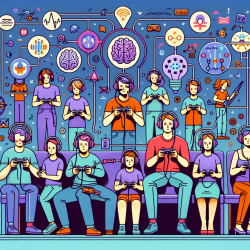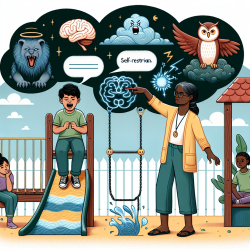Introduction
As a Special Education Director, understanding the unique needs and preferences of students with diverse cognitive traits is crucial. The research article "Why iPlay: The Relationships of Autistic and Schizotypal Traits With Patterns of Video Game Use" offers valuable insights into how video game usage correlates with autistic and schizotypal traits. This blog will explore the key findings of the study and how they can be applied to improve educational and therapeutic practices.
The Study's Key Findings
The research examined the relationship between video game usage, motivations, and preferences with autistic and schizotypal traits. Participants completed various questionnaires and neurophysiological tasks to assess their traits and gaming habits. The study revealed several significant findings:
- Females with higher autism scores played more video games and exhibited male-typical genre preferences.
- Positive schizotypy was associated with reduced video game use across genders.
- Males generally played more video games than females, preferring action games, while females preferred puzzle and social simulation games.
- Faster reaction and targeting times were linked to gaming motives related to skill development.
Implications for Practitioners
These findings have several implications for practitioners working with students with autistic or schizotypal traits:
- Personalized Learning: Understanding that females with higher autism scores might prefer male-typical games can help tailor educational tools that engage them more effectively.
- Therapeutic Approaches: Recognizing that video games can serve as a medium for skill development and social interaction can guide the integration of game-based therapy.
- Gender-Specific Strategies: Acknowledging gender differences in game preferences can help create more inclusive and appealing educational content.
- Focus on Neurophysiology: Incorporating activities that enhance reaction and targeting times could be beneficial for students who enjoy gaming.
Encouraging Further Research
The study highlights the need for further research into the socio-evolutionary aspects of video game use and its impact on cognitive development. Practitioners are encouraged to explore how these findings can be applied in various educational and therapeutic settings to support students with diverse cognitive traits.
To read the original research paper, please follow this link: Why iPlay: The Relationships of Autistic and Schizotypal Traits With Patterns of Video Game Use.










